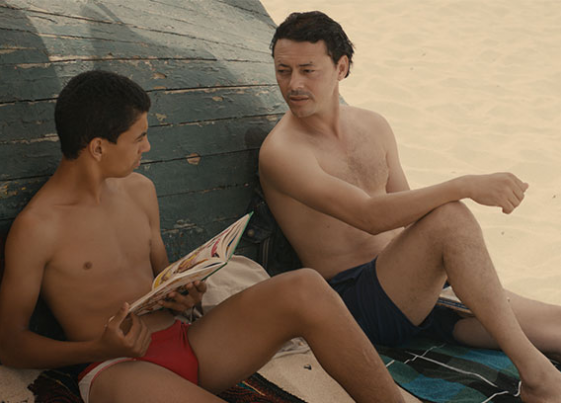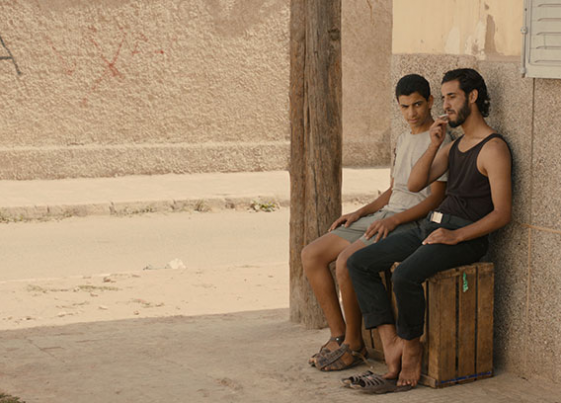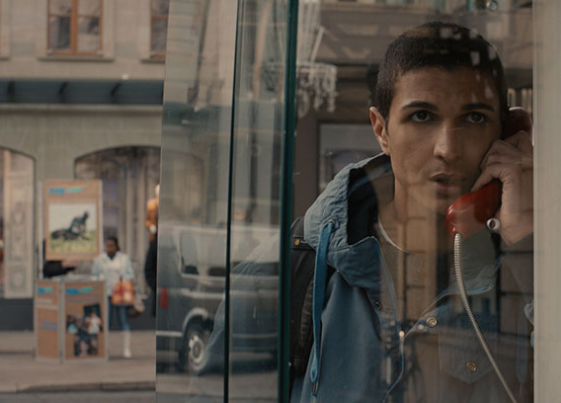

Spielfilme A-Z


Sophie Hyde · AUS 2013 · E/d · 114 min

Guillaume Foirest · F 2013 · F/d · 39 min


Miguel Ferrari · VEN 2012 · Span/e/d · 110 min

Eytan Fox · ISR 2013 · E/d · 90 min

Nanouk Leopold · NL/D 2013 · NL/d · 93 min

Robin Campillo · F 2013 · F/E/Rus/e/d · 128 min

Clément Badin · F 2013 · Span/d · 55 min

Diego Araujo · Ecuador 2014 · Span/d · 82 min

Bruno Barreto · BRA 2013 · Bras/d · 116 min

Bruce LaBruce · CDN 2013 · E/d · 83 min

Marco Berger · ARG 2013 · Span/d · 102 min

Axel Ranisch · D 2013 · D/e · 99 min

Alessandro Lunardelli · I 2014 · I/Span/E/e · 95 min

Mischa Kamp · NL 2014 · NL/d · 78 min

John Krokidas · USA 2013 · E/d · 104 min

Abdellah Taïa · F/MAR/CH 2013 · Arab/F/d · 84 min




Feature film
In a perfect world, film festivals would be filled with debut films as disciplined and poetic as Salvation Army, a film that first-time director Taïa adapted from his own autobiographical novel. This fact alone should be cause for consideration: How many filmmakers wallow in the self-indulgent excesses of autobiography? So few are capable of accomplishing what Taïa does here, which is to regard his own story with relative objectivity. His young on-screen surrogate (Said Mrini), first seen growing up in a large family in Morocco, is shown negotiating various structures which are supra-individual and which exist neither to victimize him nor to inculcate him into adulthood. He sneaks away from his troubled clan to hide in abandoned buildings and have sex with random men, his lack of affect alerting us to Abdellah’s recognition that desire operates within an economy, emotional engagement being only a secondary concern (at best). When the film skips ahead to the adult Abdellah (Karim Ait M’hand) and his relationship with a Swiss professor, we can witness the impact of these early lessons of gender and ethnic inequality on the grown man, as he attempts to transition from opportunist to stable citizen in a society that still views him with suspicion. Salvation Army avoids the usual pitfalls of political cinema, precisely because Taïa is able to remain focused on particulars, the overwhelming feel of things. (Agnès Godard’s cinematography certainly helps in this regard.) But at the same time, Taïa makes sure that we see those specifics as nodes within objective historical formations, in which there are no enemies or smug tellers of truth, only people trying to make their best available move. (TIFF)

Yossi Aviram · F/ISR 2012 · F/e/d · 85 min

Jean Delannoy · F 1964 · F/e · 98 min

Diederik Ebbinge · NL 2013 · NL/d · 87 min


Javier van de Couter · ARG 2011 · Span/d · 105 min

Lee Galea · AUS 2013 · E/d · 84 min

Pratibha Parmar · GB 2007 · E/d · 94 min

Karsten Geisnaes · DAN 2013 · Dän/e/d · 35 min

Possidonio Cachapa · P 2012 · Port/e/d · 29 min

Dee Rees · USA 2011 · E/d · 86 min

Hermann Kosterlitz (Henry Koster) · A/H 1934 · D · 83 min

Sarunya Nothai · THA 2012 · Thai/d · 90 min
Evgeniy Nevskiy · RUS 2014 · Rus/e · 110 min

Chris Mason Johnson · USA 2013 · E/d · 90 min

William Wyler · USA 1961 · E/e · 104 min

Steven Spielberg · USA 1985 · E/d · 148 min

Daniel Ribeiro · BRA 2014 · Port/d · 96 min

Kate Johnston, Shauna MacDonald · CAN 2013 · E/d · 87 min

Martin Provost · F 2013 · F/d · 139 min

Monika Treut · D 2014 · D · 82 min

Anna Margarita Albelo · USA 2013 · E/d · 83 min

